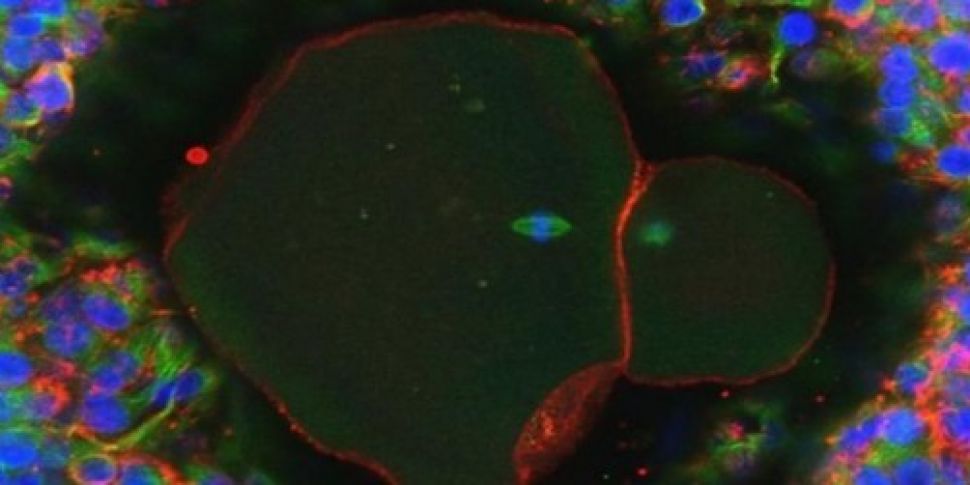Scientists at the University of Edinburgh have fully grown human eggs in a laboratory, in a move that could lead to improved fertility treatments.
The eggs were removed from ovary tissue at their earliest stage of development, to the point at which they are ready to be fertilised.
Researchers claim the advance could safeguard the fertility of girls with cancer ahead of potentially harmful medical treatment, such as chemotherapy.
Immature eggs recovered from patients' ovarian tissue could be matured in the lab and stored for later fertilisation.
The University of Edinburgh says: "Conventionally, cancer patients can have a piece of ovary removed before treatment, but re-implanting this tissue can risk reintroducing cancer.
"The study has also given insight into how human eggs develop at various stages, which could aid research into other infertility treatments and regenerative medicine."
The University of Edinburgh | Image: ed.ac.uk
Scientists and medical experts worked together to develop suitable substances in which eggs could be grown - known as culture mediums - to support each stage of cell development.
Their findings, using tissue donated by women who were undergoing routine surgery, build on 30 years of research.
In previous studies, scientists had developed mouse eggs to produce live offspring, and had matured human eggs from a relatively late stage of development.
This latest study is the first time a human egg has been developed in the lab from its earliest stage to full maturity.
The study was carried out in collaboration with the Royal Infirmary Edinburgh, The Center for Human Reproduction in New York and the Royal Hospital for Sick Children in Edinburgh.
It was also supported by the UK Medical Research Council.
Professor Simon Fishel, from Beacon CARE Fertility in Dublin, welcomed the breakthrough.
But he also cautioned that further research is needed to establish whether eggs developed using the method could be healthy.
He said: "This study demonstrates that there is much laboratory research to be undertaken before we can be encouraged to believe that we will achieve healthy normal eggs for clinical purposes in vitro developed follicles derived from human ovarian cortical tissue".










